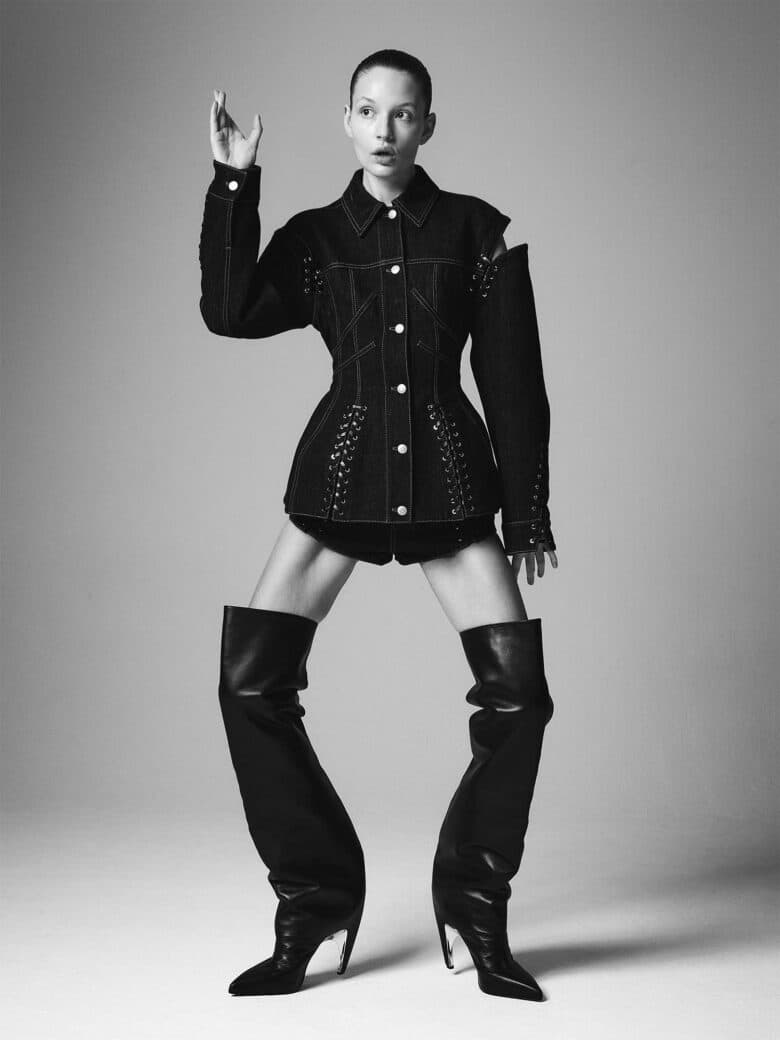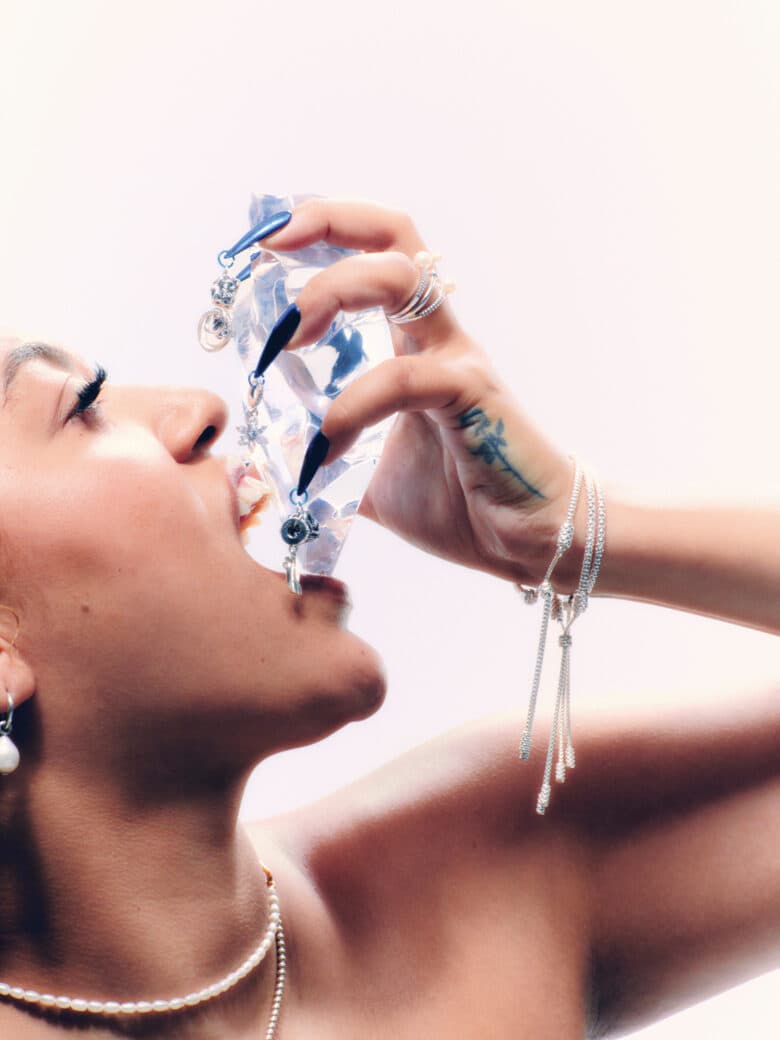Ukrainian photographer Julia Kochetova shares diary entries of time reporting in Bakhmut during Russian siege
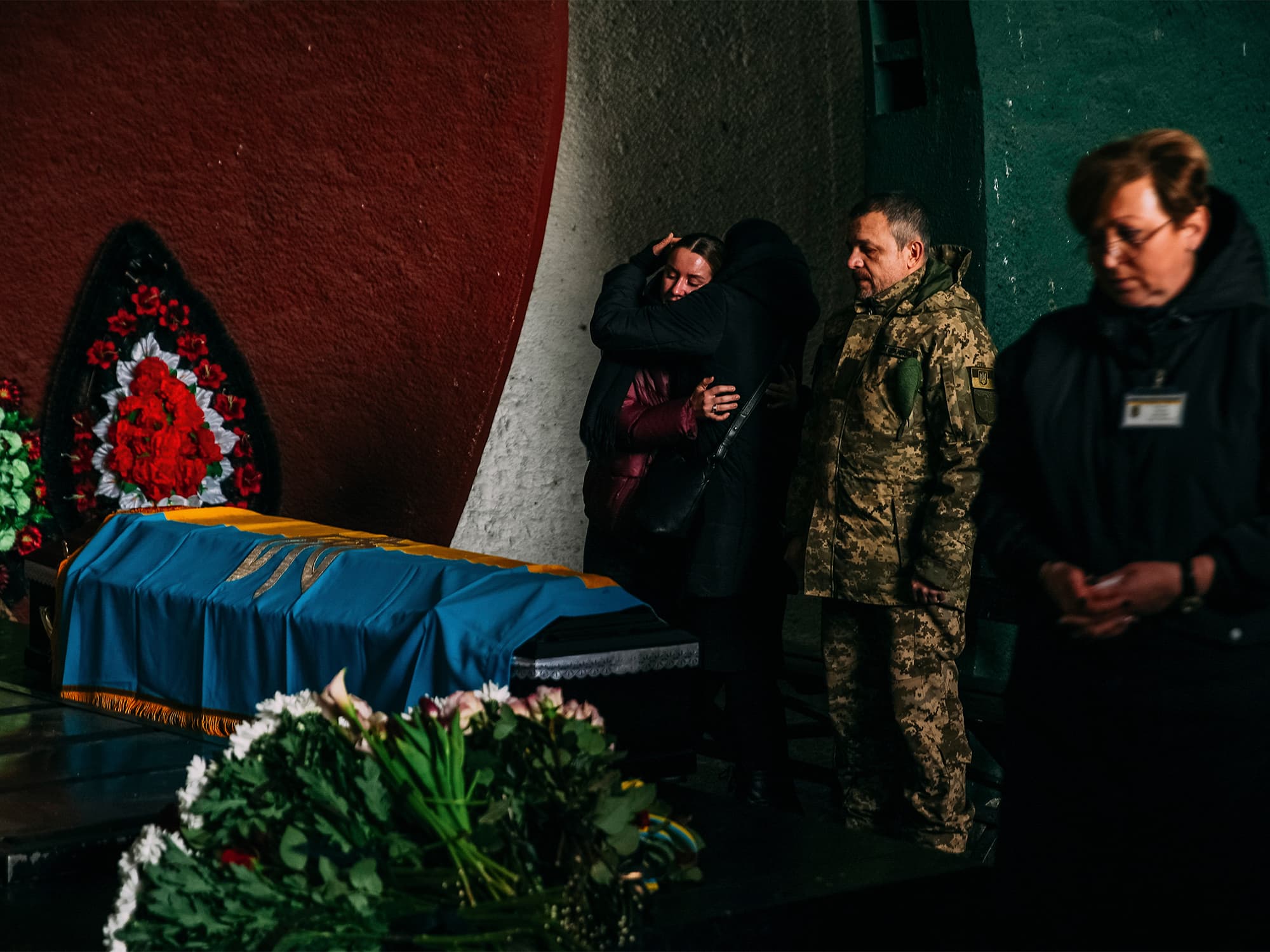
This photo series was taken from issue 29 of HUNGER Magazine, Going Underground
Bakhmut was always a safe transit space for me, between war and “normal” life. I would stay there before reporting on the front line, or on my way back home. There was always food, OK coffee, cheesecakes and a feeling of safety. But these everyday memories are scratched now. I can only remember the destruction, the black body bags, smoke on the horizon, the sound of shells landing and questions of “Will this ever end?” with no answers. I came back to report here in 2022 and 2023, during some of the fiercest battles the city has ever seen. I wanted to document Bakhmut, despite the fact that the Russians had scorched the land, the buildings and the streets, where corpses lay out for weeks — they so badly wanted this fortress to fall. War is extremely ugly, but I will come back to Bakhmut again and again.
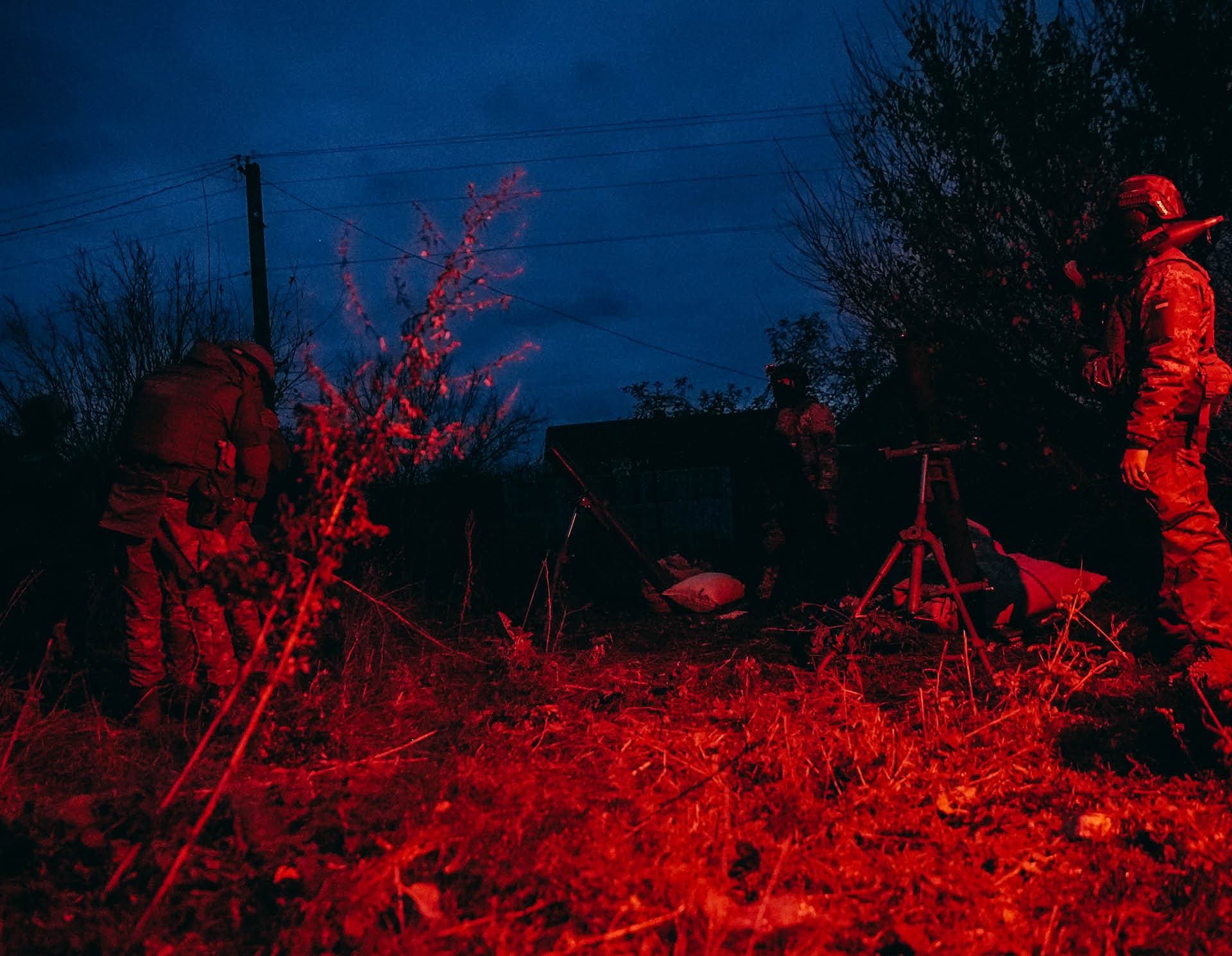
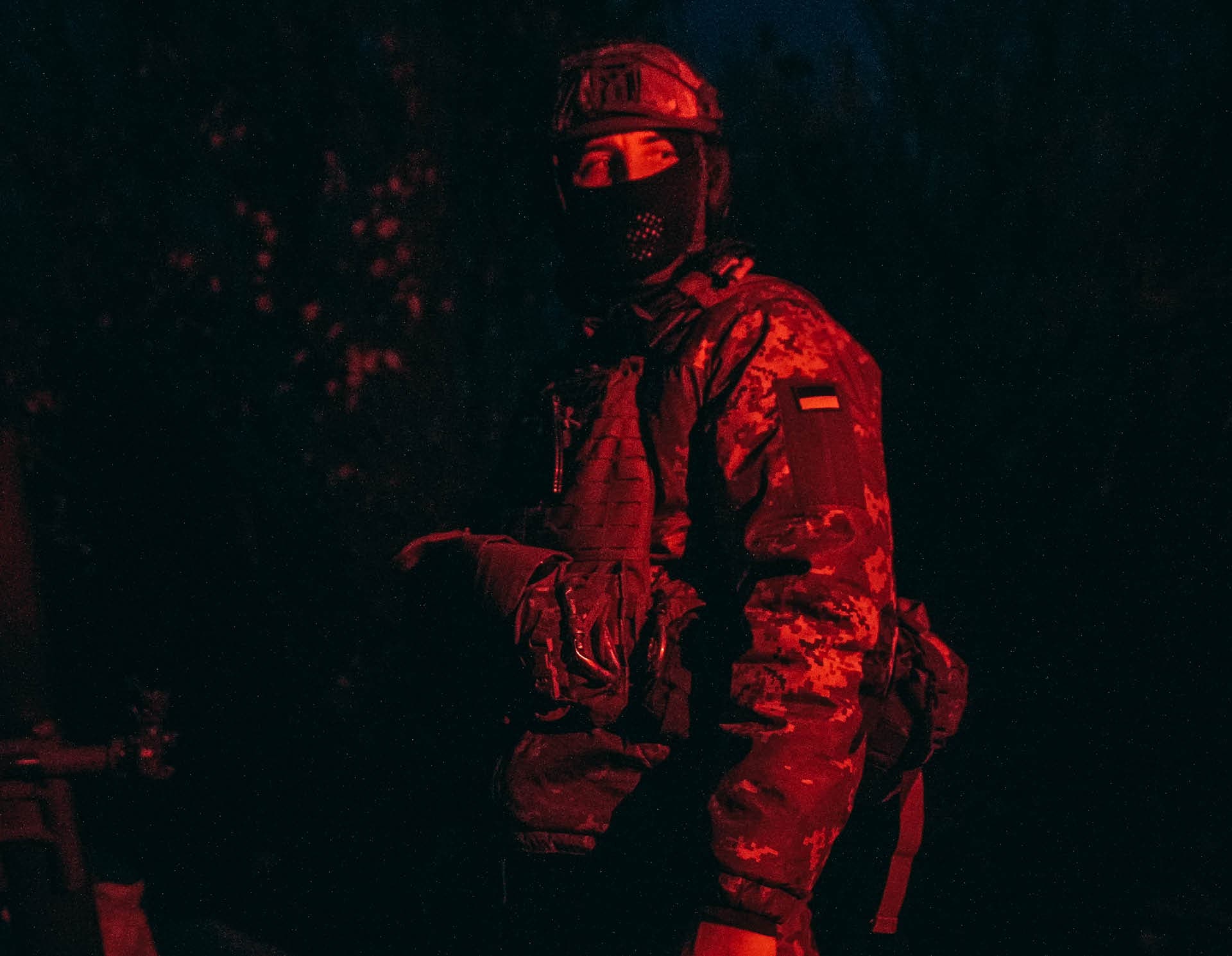
AUGUST 2022
Bakhmut is now an abandoned ghost town with artillery shells flying over it. There are mountains of garbage and lonely silhouettes. For the second week there has been no electricity, no water and no silence. Firefighters have stayed in Bakhmut, but there is not enough water for all of the fires and they are now helping to carry the wounded to the hospital. Those who are dead are left under the rubble because it’s too dangerous to risk those who are still alive. Here is a burning city that doesn’t want to die and those who stay live at the crossroads of life and death.
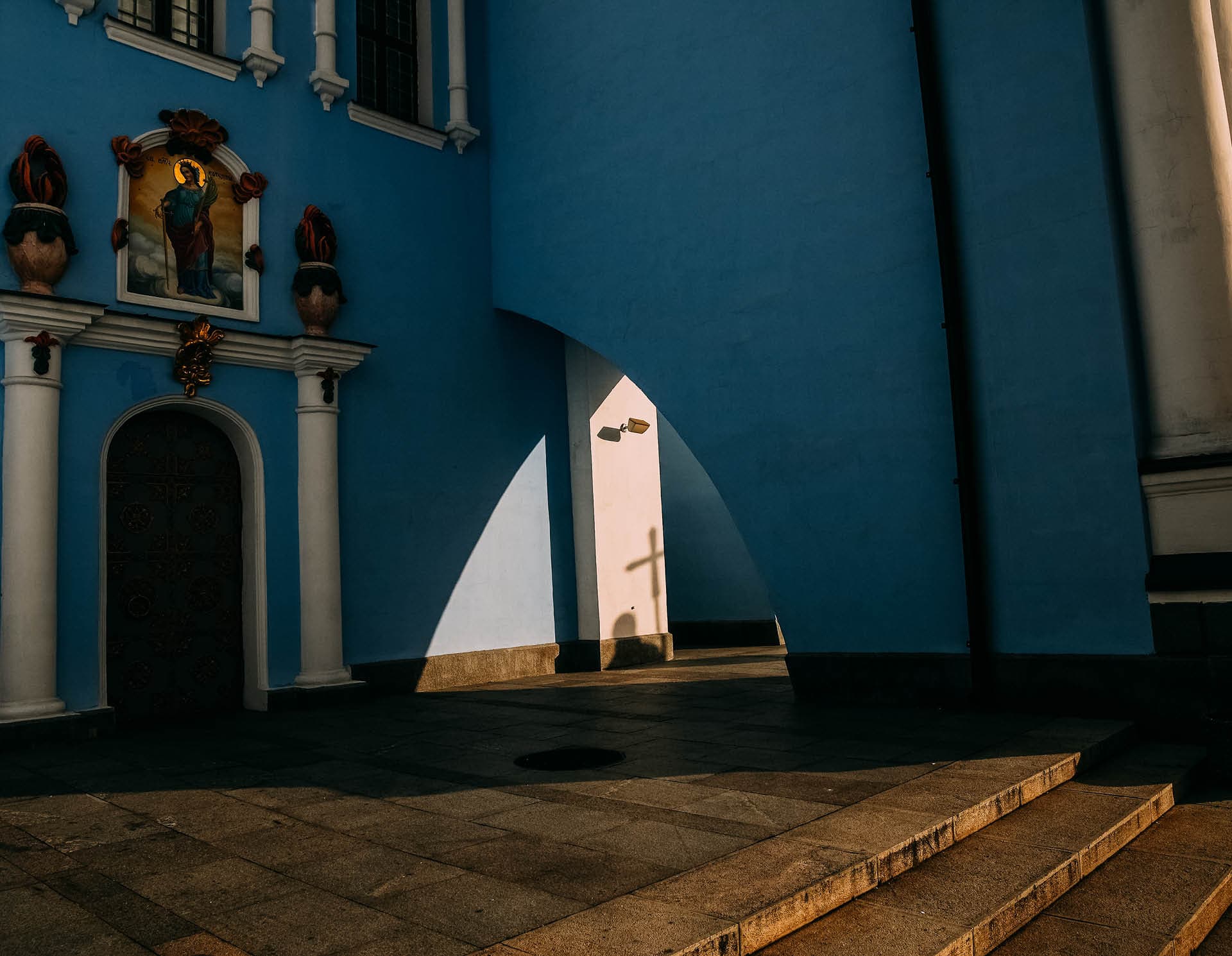
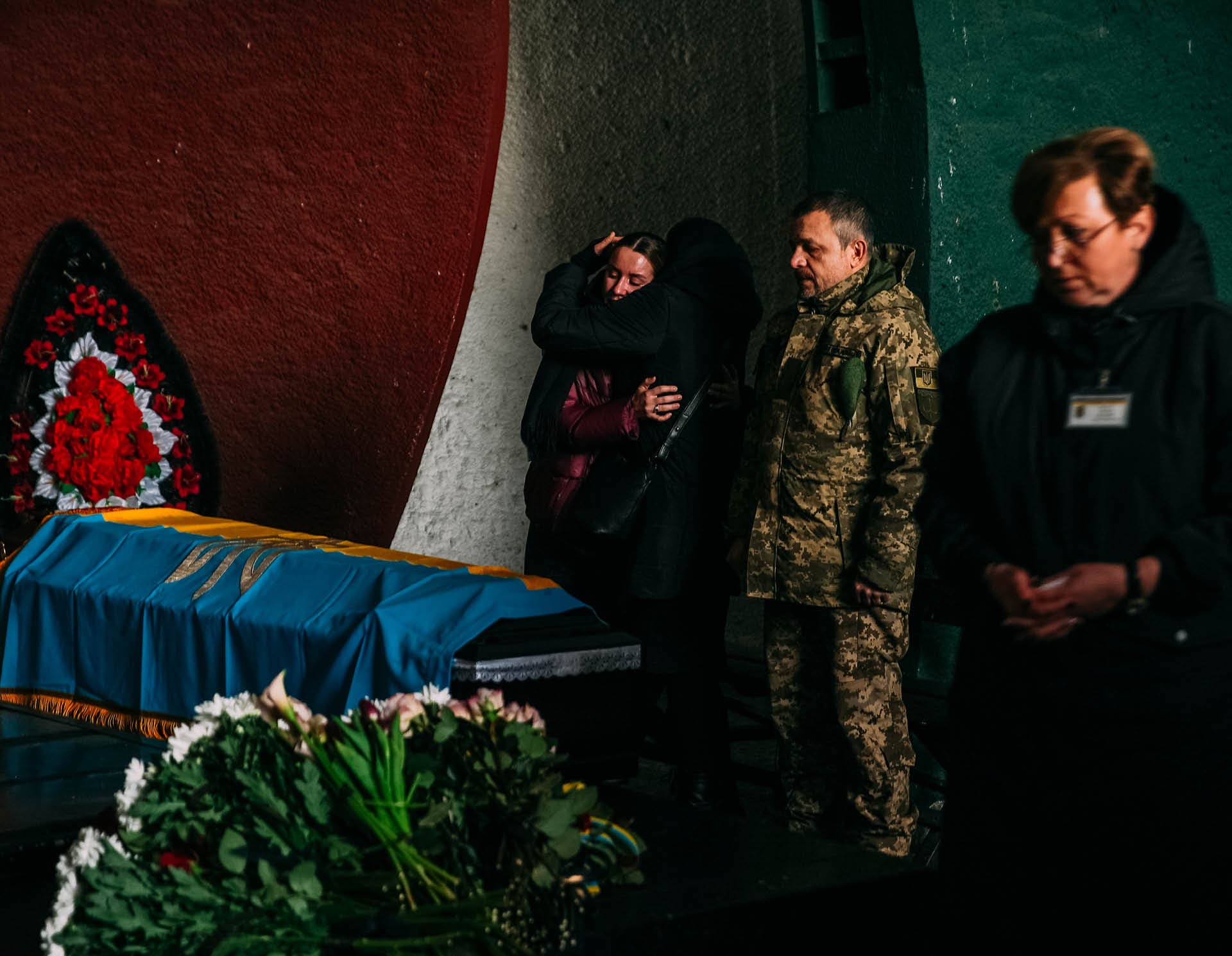
DECEMBER 2022
I have a summary and it hurts,
It is easier to bury friends in a closed coffin than in an open one,
I try to hide from death with a camera,
My portraits can’t save from death,
Love doesn’t save from death either,
Cemetery lot 131, 16th row, 13th place,
I miss you so fucking much.
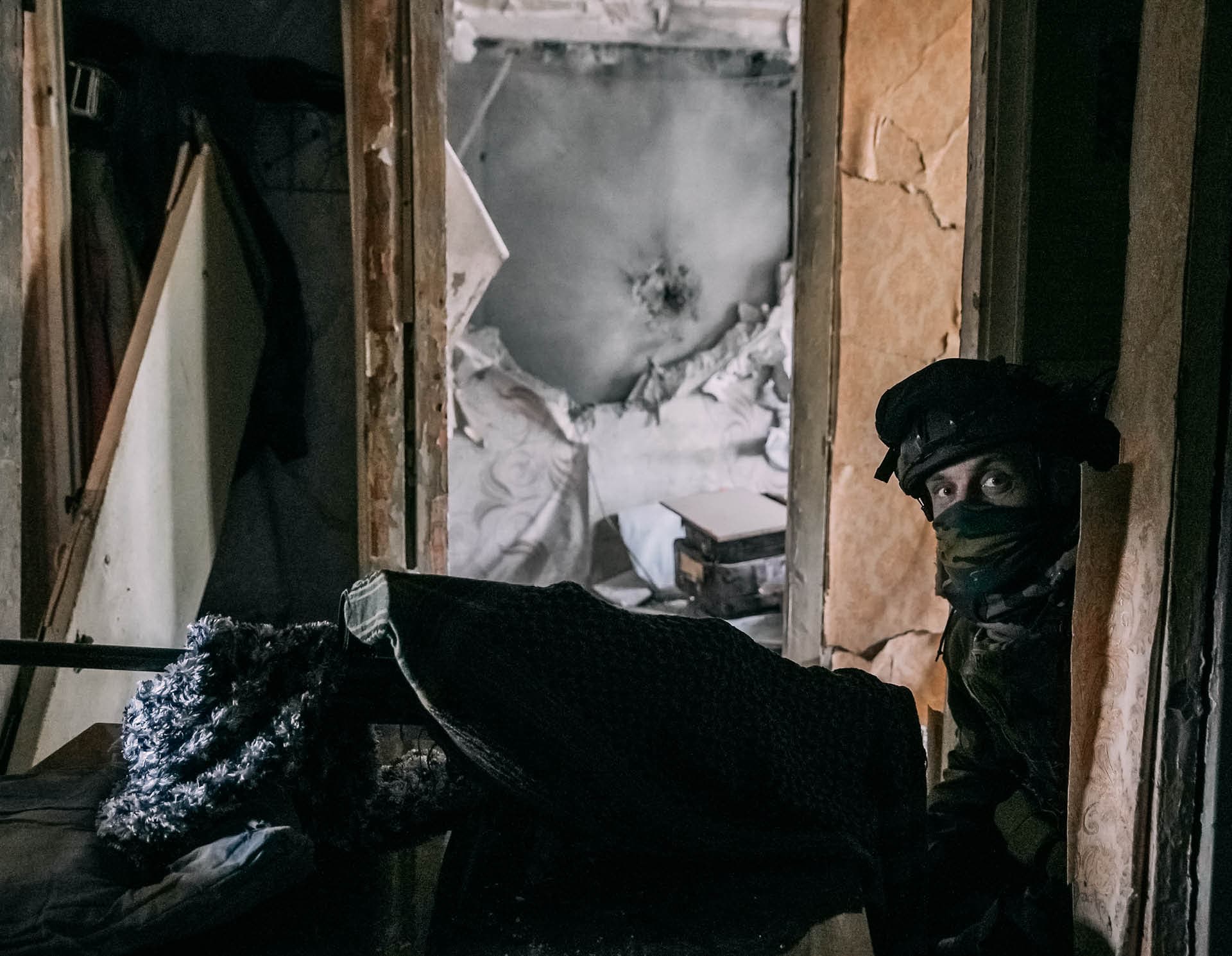
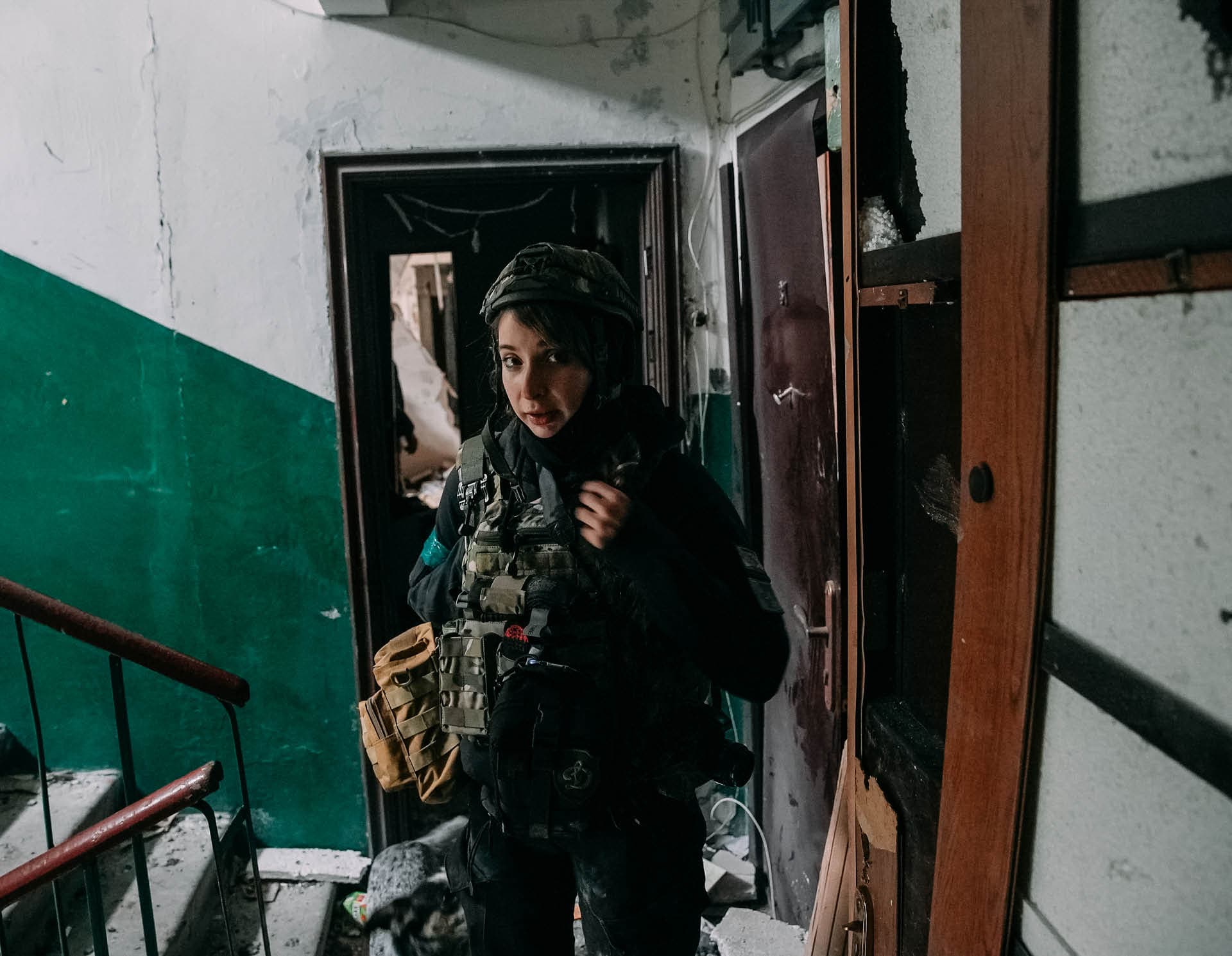
APRIL 2023
The roadsides are still being cleaned, from garbage, car debris and fragments of rockets. The yellow cross, “Save and Protect”, is still in place. Near the supermarket, a soldier and his wife smoke a cigarette. How quiet is the breath after the tornado. All of the wounded have been stabilised and loaded into vehicles, and on the walls are lines from the Testament.
The medics are looking intently on the horizon as cars carry bad news along the road. The earth explodes and shrapnel flies into bodies that then end up on the table in the doctors’ hands. How tightly they hug and laugh afterwards: “The mine fell five metres away and I’m alive!” Dirty faces, light eyes, wounded, wounded, wounded. Their names are the same as yours, as your mothers, fathers, brothers and sisters. I don’t know where to escape from all these names. In the morning they will bring another heavily injured one — a fragment flew into his back and through the abdominal cavity. I will sit in the toilet and silently cry. Days pass and we are on another planet. The basement is mined in case of an assault. There is no shelter any more — we have to hold out for 24 hours. We laugh that if we get out of here, we can never tell our mothers. Bakhmut has become synonymous with obituaries, but we came here voluntarily. All my work is made to show that war is personal, that it has a name, a family, and is not just a number.
A sniper takes a portrait of me. I think a lot about how scared I look in this photo, and how my mind and heart has slowly accepted that I live much more in war than in life.
